[Note: The series of essays will not be completed by the Winter Solstice as I had promised. I now realize that there is still too much research and writing needed to complete the series in time with good essays.
The daily newsletters’ Songs(s)-of-the-Day, and information about them, will continue through Winter Solstice on Tuesday. Other good news is that I already have one more essay ready in close-to-final form: I will be posting it on Solstice Day; Tuesday.
By the way, don’t worry about me. I’m not totally exhausted. This measure is to prevent that.]
The Songs
The Wren Song – 1:02 – The Clancy and Makem families’ children
Can y Fari Lwyd – 2:34 – Julie Murphy
The Kentucky Wassail Song - 2:10 – John Jacob Niles
La Guillonné l'on vous demande - 1:51 - Gabrielle Bouthillier with Strada
The Wren Song This Irish wren-hunting song is sung by the Clancy Brothers’ nieces and nephews Lory, Eamon, Moira and Siobhan Keily. The recording is from the above 1967 vinyl album At Home with the Clancy Brothers & Tommy Makem and their Families.
In this family tribute the professional folksingers share the stage with their amateur relatives, which I think makes it the best of their three Christmas albums. Besides the children, their parents have solo songs and the album includes a short mouth music song (Dowdling) that their grandmother, Mrs. Joan Clancy, had recorded in 1956.
The Wren Song itself was already a big international hit for the group from when the original three-brother group had performed it (with an amusing introduction and epilogue) at a St. Patrick’s Day concert at Carnegie Hall in 1963, and two years after this family album all four of the folksinger brothers again recorded it on another Christmas album.
If you were around for folk music, or even pop music, in the 1960s you already know who the Clancy Brothers and Tommy Makem are. If you are too young to remember them, they were really big during the folk revival at that time. If you can imagine it, at that time folk music was popular on pop music radio. They were the first major performers during that era who brought Irish folk music to international attention. During that time in the 1960s the Clancy Brothers relocated to New York City and had a major influence on their friend and colleague Robert Zimmerman, who you may know as Bob Dylan.
The original Clancy Brothers group were Paddy, Tom and Liam. As far as I know, this is the first album in which their brother Bobby recorded with them. (He had his own successful solo career at the time.) The brothers came from Carrick-on-Suir in County Tipperary, Ireland.
Tommy Makem came from County Armagh in Northern Ireland. His collaboration with the Clancy Brothers made for a very unusual and hopeful sign during the height of the political upheaval known as The Troubles. His mother, Sarah Makem, had been an important source for documenting traditional Irish music, and had been visited and recorded by many folk music collectors including Jean Ritchie.
The Wren Song
Traditional Irish ritual song
As sung by the Clancy Family in County Tipperary1. The wren, the wren, the king of all birds,
St. Stephen's Day was caught in the furze,
Although he was little his honour was great,
Jump up me lads and give him a treat.
Up with the kettle and down with the pan,
And give us a penny to bury the wren.2. As I was going to Killenaule,
I met a wren upon the wall.
I took me stick and knocked him down,
And brought him in to Carrick Town.
Up with the kettle and down with the pan,
And give us a penny to bury the wren.3. Droolin, Droolin, where’s your nest?
’Tis in the bush that I love best
In the tree the holly tree,
Where all the boys do follow me.
Up with the kettle and down with the pan,
And give us a penny to bury the wren.4. We followed the wren three miles or more,
Three mile or more three miles or more.
We followed the wren three miles or more,
At six o’clock in the morning.
Up with the kettle and down with the pan,
And give us a penny to bury the wren.5. I have a little box under me arm,
Under me arm under me arm.
I have a little box under me arm,
A penny or tuppence would do it no harm.
Up with the kettle and down with the pan,
And give us a penny to bury the wren.
Can y Fari Lwyd is a Welsh Mari Lwyd (Grey Mare) luck-visiting song from Glamorganshire. It is sung here by Julie Murphy, who has the ugliest website I have seen in my research for this newsletter/blog series. But it does have a distinctive sort of primitive charm, so I’m pretty sure she designed it that way on purpose.
The song was recorded for the above 1996 Saydisc album. Being from Saydisc is meaningful since they are an authenticity-oriented record label (rather like being the English equivalent of an American folk music recording being issued by Smithsonian-Folkways or Folk-Legacy Records.)
The album was compiled by Dave Townsend, the founder and music director for the Mellstock Band, which is another assurance of authenticity. The lyrics were collected in Aberystwyth from Mr. T.I. Phillips. The album notes do not say when this variant of the song was collected, or by whom. That leads me to suspect that Dave probably collected it himself.
In practice, the song would not be sung as a solo but as a ritual rhyming dialog between the visiting Mari Lwyd crew and those inside the house being visited, in this case sisters, with the verses alternating between them. Traditionally, as with many luck-visit songs, many of the lyrics would have been personalized by the visiting singers for their would-be hosts, and in the Mari Lwyd tradition the family would have sung improvised responses.
As so many authentic folk traditions and songs, this flexibility has been forgotten and we now tend to adhere to somewhat frozen-in-time and standardized versions. This is at least partly due to customs and songs having nearly died out, and now being revived or learned from limited source material. Unlike their forebearers who were used to the flexibility of folk music, even traditionalist folksingers like me are used to being introduced to songs by hearing them from recordings from other singers, and are reluctant to make changes from what they heard or from the lyrics that they find in liner notes or online.
The English translation of this variant of the song, from the liner notes, is:
Can y Fari Lwyd – English translation
collected from Aberystwyth from Mr. T.I. Phillips
Traditionally, this is a dialog between the household (in this case, sisters)
and the Mari Lwyd visitors, and verses would be improvisedDid you close the doors (sisters, inside)
The Mari Lwyd boys
Are bound to come her
To singWell here we come (visitors, outside)
Innocent friends
To ask permission
To singThey’re in the yard (sisters)
Listen to them shouting
Come girls, for pity’s sake
To hideThe Mari Lwyd’s here (visitors)
Full of stars and ribbons
It’s worth giving a light
To see herPoor old Mari Lwyd (sisters)
No one wants to see ribbon
Or stars on your forehead
TonightWe ripped our trousers (visitors)
Crossing the styles
Coming here
TonightHow many falls did you have (sisters)
How many styles did you cross
Coming the way you came
Tonight?Well, tap the barrel (visitors)
Pour it freely
And fill the bowl
With beerThere is a small barrel here (sisters)
Of splendid strong beer
But you won’t have one sip
Of beerOh pull the bolts (visitors)
Open the doors
The wassail boys
Give a welcomeWe’ll pull the bolts (sisters)
And open the doors
And the Mari we’ll welcome
To our feastThanks to you (visitors)
For a welcome to us
And ‘til next year
Farewell to you
The Kentucky Wassail Song is from John Jacob Niles’ above 1955 78rpm disc recording. When the 1960s American folk song revival began Niles was already a folk music legend. His songs never made it onto the pop music charts because he never adjusted his style of performance to cater to popular tastes.
Niles said that this was an Appalachian variant of the English wassail songs. Niles had indeed worked and travelled in the Appalachian mountains of Eastern Kentucky from 1910 to 1917, collecting and transcribing traditional ballads from oral tradition. Many folk song collectors went to that region, as I discussed in my essay about Jean Ritchie and her family last Monday. He began publishing songs from those collecting trips in 1920, but he never published this one.
This 1955 recording was the first time that Niles shared the song with the folk music world. Niles was indeed an important folk song collector, and he did preserve many songs that would otherwise have been lost. But, arguably true to the spirit of oral transmission of folklore, he also often made changes to suit his style and added verses. Sometimes he even called songs that he wrote folk songs.
He got caught out on that when his I Wonder as I Wander, from this same album, became a big Christmas hit song. He had a good explanation for it, but only a small part of that song had actually been collected. This song didn’t get as much attention and scrutiny at the time. So in this case we can’t be sure of how of what we hear is what he collected, and how much is his own interpretation, and even whether he put wrote the song as if it was an English wassail song that had been “folk processed” in the Appalachians.
The song has similarities to both the Somerset Wassail and the Gloucestershire Wassail. That can be explained either by being a new song that was intended to sound like an authentic English wassailing song, or by being an authentic old songs that had been folk processed by over 150 years of oral transmission and singing in the Appalachians. Remember, it is in the nature of wassailing songs that they were adapted and changed to personalize the song for the household being visited.
We’ll probably never know what the authenticity of this song is as a true folk song, and perhaps it shouldn’t matter. It is a very entertaining wassail song.
The Kentucky Wassail Song
collected, written, or both by John Jacob Niles1. Wassail, wassail, all over the town,
Our cup is white and our ale is brown.
The cup is made from the old oak tree,
And the ale is made in Ken-tuck-y
So it's joy be to you and a jolly wassail!
2. Oh good man and good wife, are you within?
Pray lift the latch and let us come in.
We see you a-sitting at the boot o' the fire,
Not a-thinkin' of us in the mud and the mire.
So it's joy be to you and a jolly wassail!
3. There was an old maid and she lived in a house,
And she had for a pet a tiny wee mouse,
Oh the house had a stove and the house was warm,
And a little bit of liquor won't do no harm.
So it's joy be to you and a jolly wassail!
4. Oh a man in York drank his sack from a pail,
But all we ask is a wee wassail.
Oh, husband and wife, alack, we part,
God bless this house from the bottom of our heart,
So it's joy be to you and a jolly wassail!
La Guillonné l'on vous demande is a traditional French wassail song; un chanson de quête. Unlike the traditional wassail songs in Britain, many French wassails link the seasonal gift-giving to the birth of Christ and to the gifts of the three kings. This one does not do that: It is secular like the British ones. Strada learned it from Anthologie des chants populaires français by Joseph Canteloube, published in 1951 in Paris.
I found Volume 1 of Canteloube’s five-volume folk song anthology online as a PDF, but unfortunately that volume doesn’t include this song. The work is sorted by regional languages beginning in the south of France. Since most of the Quebecois settlers came from the north of the country, the song is probably in volume 4 or 5. They do not appear to be available online (but I have not checked academic online sources that require a subscription and may not be revealed through a Google search.)
Strada was a Quebec-based early music ensemble that recorded six albums from 1995 to 2006 before merging into Ensemble Anonymus, a group that had been formed in 1978 and is still active today.
In this song the visitors ask the housewife for bread and wine. They also ask for the eldest daughter’s hand in marriage. I have never heard anything like that in any British wassail song, but there is a similar request made in the Quebec wassail song La Guillanee. Below is a YouTube video (click here or on the image) of a very entertaining performance of that song by Dennis & Jennifer Stroughmatt of Sainte Genevieve, Missouri, and here is the song in English recorded in 1985 by the Gerry and George Armstrong.
From the liner notes, here are the lyrics to La Guillonné l'on vous demande in French:
La Guillonné l'on vous demande
compiled by Joseph Canteloube
Anthologie des chants populaires françaisSomme bien vingt-cinq ou trente,
La Guillonné l'on vous demande.
Mais san vous faire trop prier;
La Guillonné Madam’ il nous faut la donner.Mettez-nous la nappe blanche,
La Guillonné l'on vous demande,
Du pain, du vin, si vous voulez.Si vous avez fille grande,
La Guillonné l'on vous demande,
La fille grande à marier.





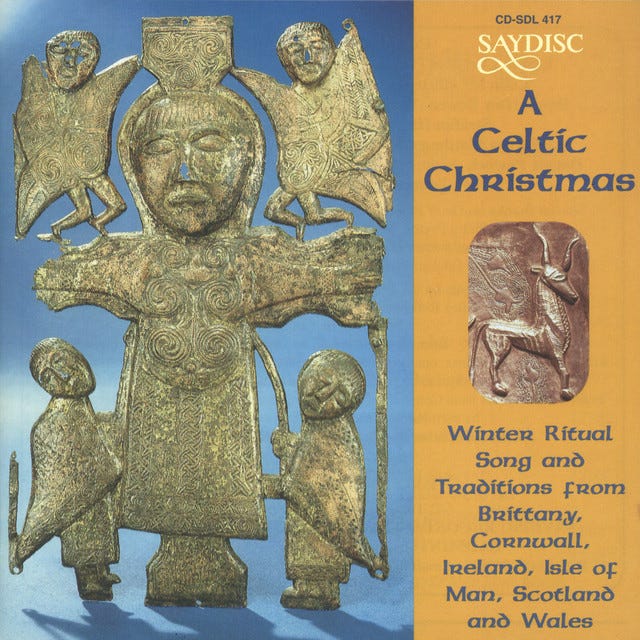
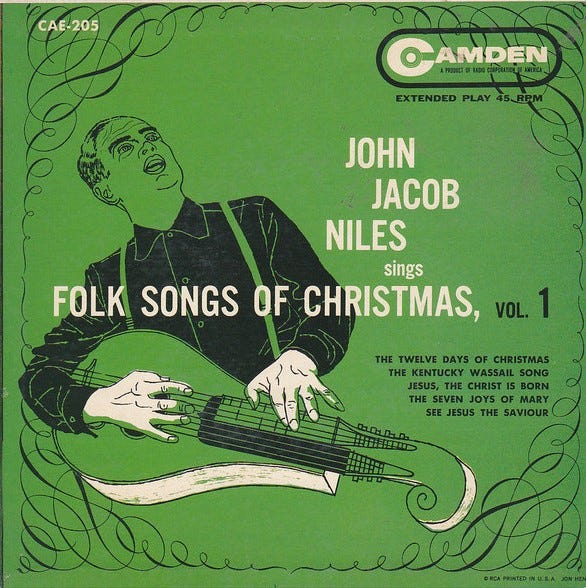



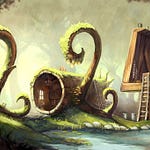


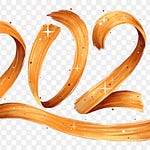

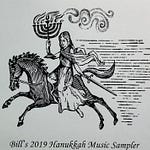
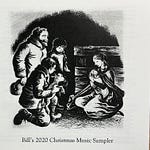

Share this post